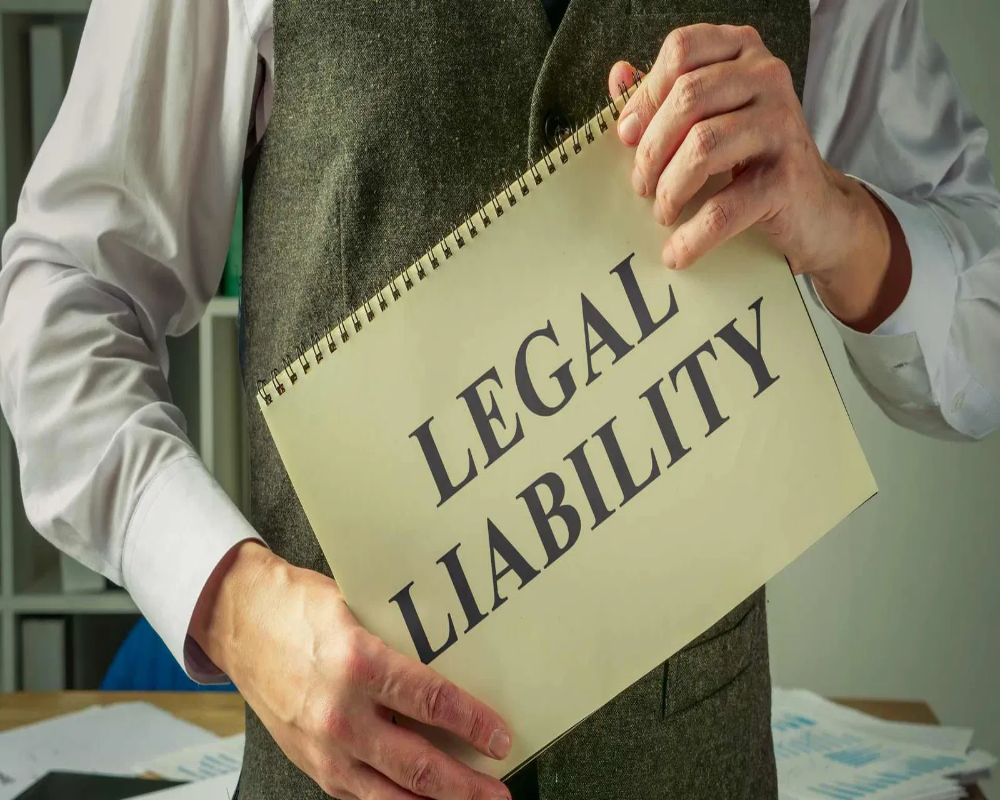Introduction
Section 8 Companies in India are special entities formed under the Companies Act, 2013 with the primary goal of promoting charitable and non-profit objectives such as education, social welfare, scientific research, arts, and environmental conservation. Though they do not aim to generate profit for distribution among members, they are subject to the same legal and regulatory framework as other incorporated companies. Legal liabilities in Section 8 Companies refer to the responsibilities, obligations, and consequences that may arise for the company, its directors, and its members under corporate, tax, and regulatory laws. Understanding these liabilities is essential to ensure compliance, protect public trust, and safeguard the long-term functioning of the organization.
Corporate Liability as a Legal Entity
A Section 8 Company enjoys the status of a separate legal entity, distinct from its directors and members. This legal independence gives it the ability to own property, enter into contracts, and sue or be sued in its own name. As a company, it is liable for all its acts, contracts, debts, and obligations. This means the company must comply with corporate laws, including timely filing of annual returns, maintaining statutory records, and conducting board and general meetings as required under the Companies Act. If the company defaults in its compliance obligations, it can be penalized, and legal proceedings may be initiated against it.
Limited Liability of Members and Directors
One of the key features of Section 8 Companies is limited liability. The members of the company are typically liable only to the extent of the amount they have agreed to contribute in the event of winding up, particularly when the company is limited by guarantee. This provision protects members from personal liability for the company’s debts or losses. Directors also have limited liability in the normal course of business, provided they act in good faith and in accordance with the law. However, if directors engage in fraudulent activities, knowingly allow non-compliance, or breach fiduciary duties, they can be held personally liable under various provisions of the Companies Act.
Fiduciary and Statutory Liabilities of Directors
Directors of Section 8 Companies have a fiduciary duty to act in the best interests of the organization and its charitable objectives. They must ensure that the company operates transparently, maintains financial integrity, and complies with legal mandates. Failure to do so can lead to penalties, disqualification, or even imprisonment under Sections 166, 167, and 447 of the Companies Act. Directors are also liable if the company defaults in filing statutory forms such as AOC-4 (financial statements) or MGT-7 (annual return), or if it violates provisions related to board governance, financial disclosures, or appointment of auditors.
Liability for Misuse of Funds
Section 8 Companies are required to apply all their income and profits solely toward their stated non-profit objectives. Misappropriation, diversion, or misuse of funds for personal gain, benefit to related parties, or purposes beyond the scope of the company’s Memorandum of Association is a serious offence. Under Section 8(11) of the Companies Act, if a Section 8 Company contravenes any of the conditions laid down in its incorporation or misuses its license, it may have its license revoked. Moreover, the directors and officers responsible may face fines and imprisonment. If the license is cancelled, the company may be treated as a regular company and subjected to all restrictions of a for-profit entity.
Tax-Related Liabilities
Although Section 8 Companies are eligible to seek exemptions under Sections 12AB and 80G of the Income Tax Act, failure to use funds for charitable purposes or engage in commercial activities may lead to cancellation of tax benefits. If exemptions are misused, the company becomes liable to pay taxes as a regular business entity. Non-filing of ITR (typically in Form ITR-7) or incorrect disclosure of income can lead to scrutiny, penalties, and loss of charitable status. Directors responsible for signing tax returns or approving expenditure can also face accountability in case of violations.
FCRA and Foreign Funding Liabilities
For Section 8 Companies that receive foreign contributions, compliance with the Foreign Contribution (Regulation) Act (FCRA), 2010 is mandatory. This includes registration with the Ministry of Home Affairs, use of a designated FCRA bank account, and annual filing of Form FC-4 detailing foreign receipts and expenditures. Non-compliance can lead to suspension or cancellation of FCRA registration, seizure of funds, blacklisting, and prosecution of directors. In certain cases, foreign funding received without valid registration can result in criminal liability for both the company and its office bearers.
Liabilities upon Winding Up
When a Section 8 Company is wound up, its remaining assets, after clearing liabilities, cannot be distributed to members. Instead, they must be transferred to another Section 8 Company or a similar not-for-profit institution approved by the ROC or a competent court. If any director or member attempts to unlawfully claim such assets or interfere in the transfer, they may be subject to legal penalties. The directors are also liable for ensuring that all statutory dues, taxes, employee benefits, and contractual obligations are settled during the winding-up process.
Conclusion
Legal liabilities in Section 8 Companies are comprehensive and multifaceted. While these companies are formed with noble intentions and public benefit goals, the law places a strong emphasis on transparency, accountability, and compliance to ensure these goals are genuinely pursued. The liabilities span corporate, financial, taxation, and governance aspects and apply to both the company as an entity and its directors in their individual capacity. A clear understanding of these liabilities helps the leadership of Section 8 Companies function ethically, maintain public trust, and avoid legal risks. Ultimately, strong legal compliance strengthens the foundation of such organizations and enhances their ability to serve society responsibly and effectively.
Hashtags
#LegalLiabilities #Section8Companies #NonProfitLaw #CorporateGovernance #SocialEnterprise #LegalCompliance #CharityLaw #CompanyStructure #NonProfitManagement #LegalAdvice #BusinessLaw #CorporateResponsibility #SocialImpact #NonProfitCompliance #LegalEducation #CompanyRegulations #CommunityDevelopment #SocialGood #LegalAwareness #Section8Regulations


0 Comments